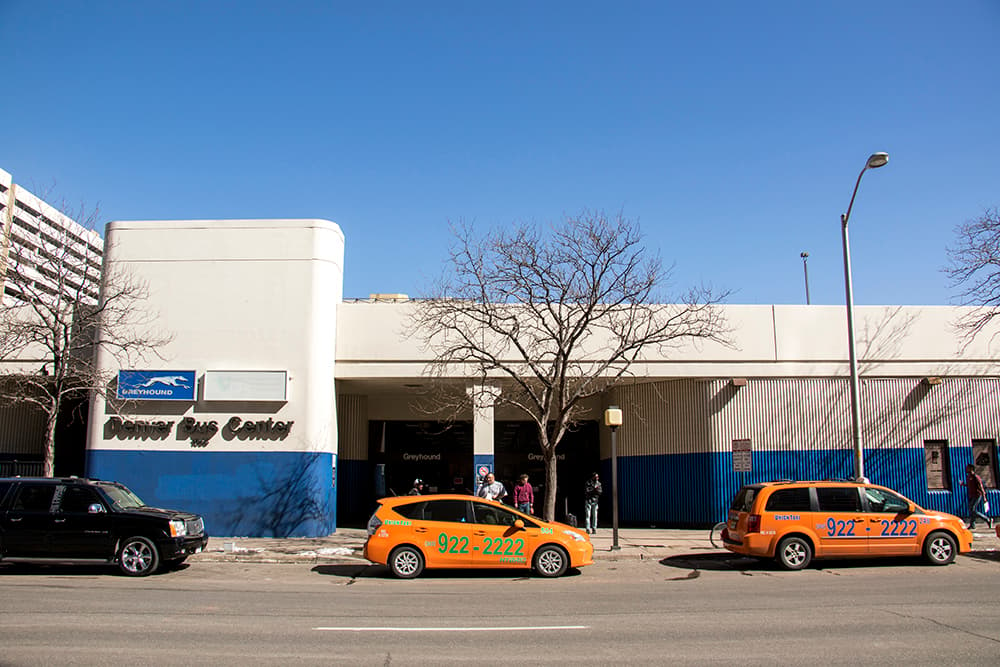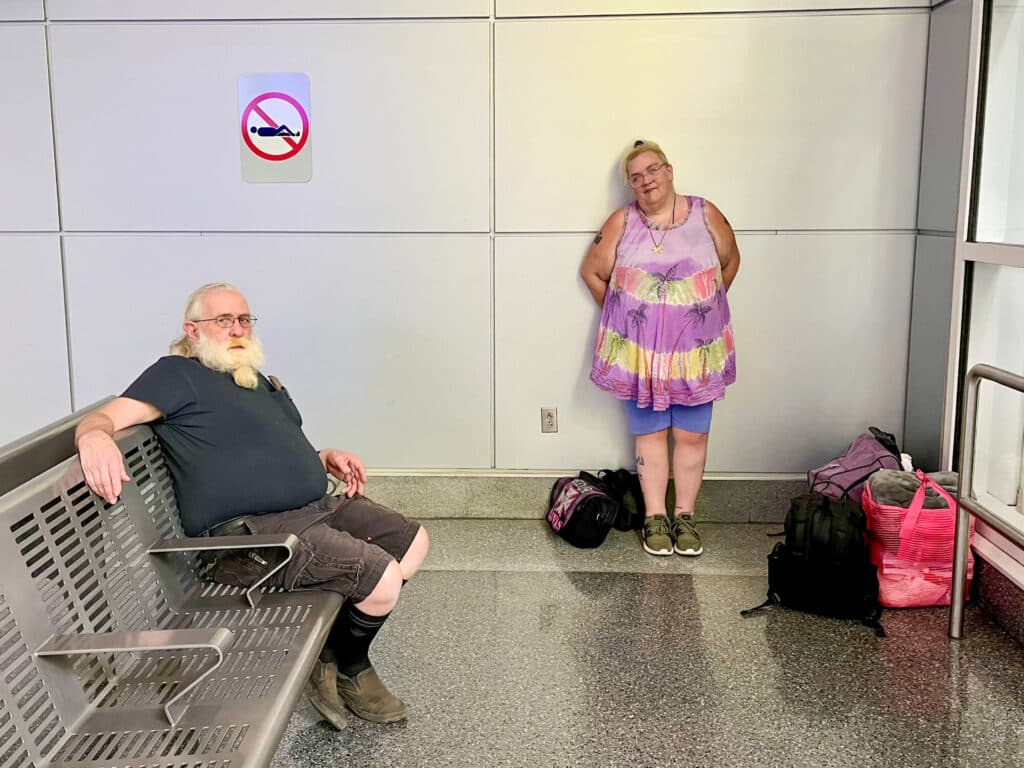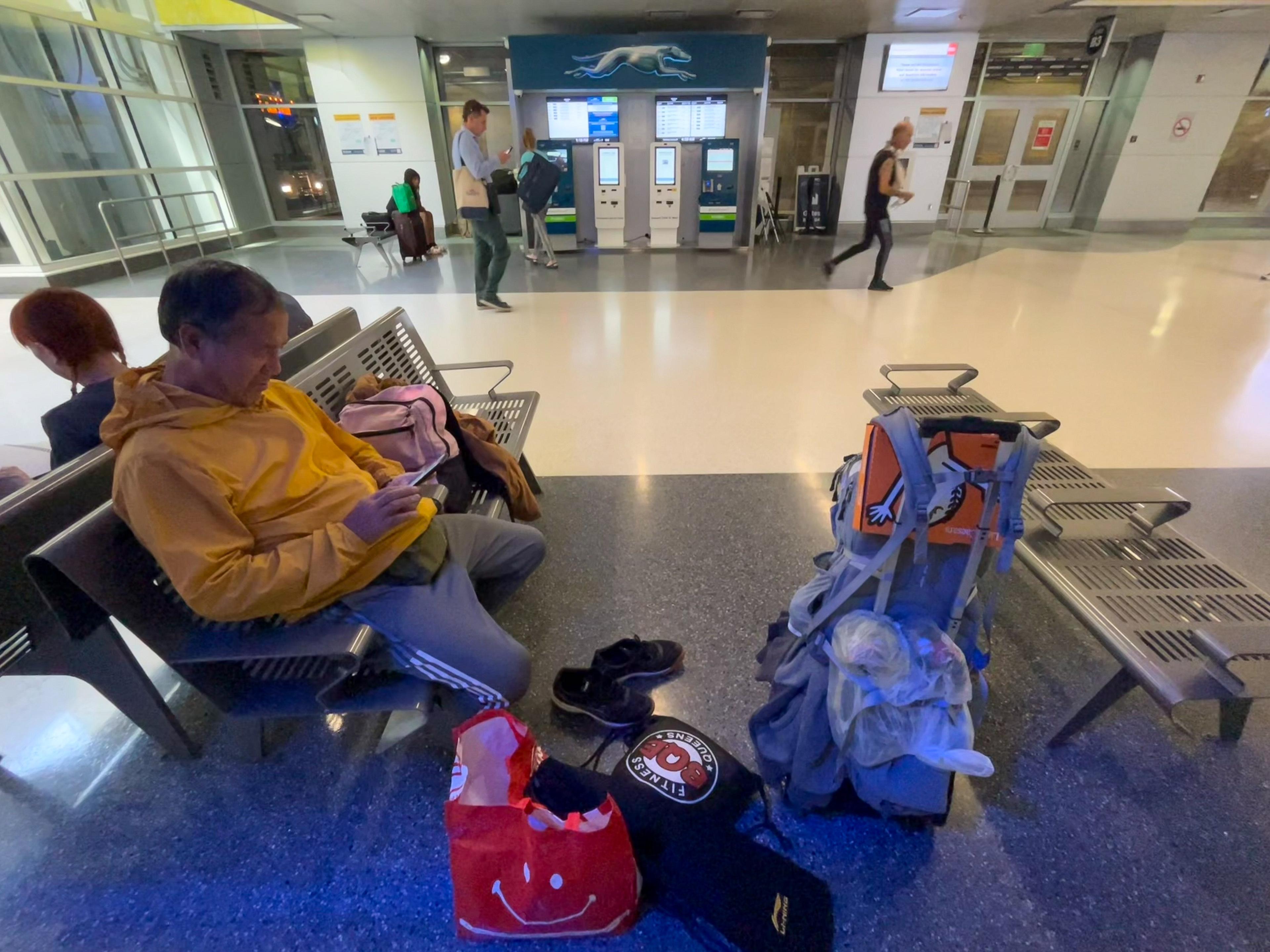The Regional Transportation District will not renew its contract with Greyhound, which will effectively end long-distance bus service from RTD’s underground bus terminal at Union Station.
RTD said that Greyhound has “abandoned buses and its customers” on multiple occasions over the last four years and that its sparse services lead to long layovers, crowding and loitering at the downtown Denver hub.
“RTD recognizes that Greyhound has made good faith efforts to address many of the agency’s concerns related to personal safety and security challenges, but it is in RTD’s best interest not to renew the agreement,” RTD spokesperson Tara Broghammer wrote in an email to Denverite.
RTD and Greyhound signed a five-year contract in 2020 and it expires Aug. 31, 2025. Greyhound is “hopeful” RTD will reconsider, a spokesperson wrote in an email.
“Our goal is to fully collaborate with local officials, addressing their concerns to ensure we can continue providing essential intercity bus services to Denver,” the spokesperson wrote. “Access to affordable and equitable transportation is critical, especially for vulnerable populations such as individuals with lower income, retirees, minorities, people with disabilities, and students. We are committed to being a good partner and a valued member of the Denver community.”
Greyhound owned an entire city block in downtown Denver until recently.
The company ran buses out of a massive facility on 19th and Curtis streets starting in the 1970s. But the intercity bus business fell on hard times in the following decades, and Greyhound sold the building in 2020 for $38 million.

Greyhound wanted to include a new station for itself when RTD was refurbishing Union Station in the early 2010s but could not afford to, according to a 2015 study. The study said RTD could accommodate Greyhound, and its diminished business, at its new underground bus depot.
That’s what ended up happening. Greyhound and RTD agreed to a five-year deal in 2020 where the company paid $600,000 a year for access to Union Station. Its lines from Denver stretch to other regional hubs like Salt Lake City, Kansas City, Mo., El Paso, Texas, and smaller cities in between.
“It's the right thing from a policy perspective to do to get them into our facility,” said RTD’s then-interim General Manager and CEO Paul Ballard. “Now, Denver will have all of that ground transportation focused on one facility.”
But issues cropped up soon afterward at Greyhound’s new home.
In the midst of the pandemic, the underground bus terminal became a de facto shelter for unhoused people. Drug use increased in and around the station. The head of RTD’s driver’s union called it a “lawless hellhole.”
“Ever since Greyhound relocated to Union Station and lockdowns lifted, Union Station has become a total disaster to the point where I am afraid to use the bus into downtown any more and will only use the commuter trains since they drop off above ground,” one RTD user told the agency in 2022.
In response, RTD announced new measures for the terminal meant to dissuade people from sticking around and restore a “welcoming transit environment.” Those included a ban on sitting and lying on the floor and eating.
Ongoing safety and security issues around the Greyhound gates have hurt RTD’s own operations and made it difficult for transit police and security guards to patrol the area, RTD’s Broghammer said.
For some Greyhound riders, the underground terminal is not a great fit either.
The few seats nearby are narrow and made of metal.
“It’s not all that comfortable,” said Melissa Bridgman, who said she was on a five-day journey from Branson, Mo., to Olympia, Wash., with her father Glenn.
Their $220 tickets were a fraction of the $1,000 plane tickets she found, though the trip was supposed to take four days. But the pair missed their connection in Denver when using the restroom, meaning they had to wait another 24 hours for the next bus.

The only public bathrooms are a significant walk from the Greyhound waiting area, either at the far end of the bus terminal or upstairs in the much fancier Great Hall.
“It’s gorgeous up there,” she said.
The Great Hall is filled with plush chairs and couches. But it’s not a true public space, managed by a for-profit company on behalf of RTD that limits access to the most comfortable seats to customers of the pricy businesses there.
Melissa and Glenn stretched out on the basement floor next to their bags instead, until a security guard said that wasn’t allowed because it was a fire hazard.
“Can I finish trying to get my phone to work or start charging first?” Melissa asked.
“They don’t work,” the security guard replied.
RTD powered down the outlets a few years ago as part of its effort to curb loitering.
“I’m so sorry about that,” the security guard added, and referred Melissa and Glen to charging stations attached to hard wooden benches at the western edge of the Great Hall.
“It’s like you’ve done something wrong,” Glenn, 73, said with a sigh as he struggled to his feet.
The pair went outside for fresh air, where they said they would spend the night after RTD closed its terminal.
Ramesh Bhattachan was on a cross-country journey from Queens, New York to Boise, Idaho to play in a badminton tournament and was also stuck in Denver for 24 hours.
He said Greyhound’s next station, if it can’t work things out with RTD, needs a few basic amenities: affordable snacks, comfortable seating, and a good restroom close by.
“This is not a proper rest stop,” Bhattachan said.













